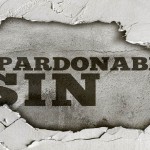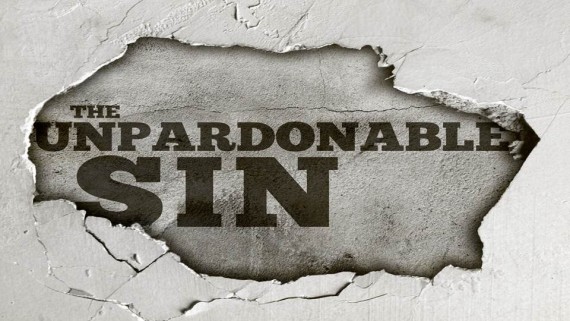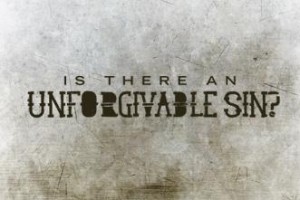 Many believe that the sin of blasphemy against the Holy Spirit — or the unforgivable sin — occurs when someone attributes the works of the Holy Spirit to the works of the devil. This view is based on Matthew 12:31-32, where some of the religious rulers state that Jesus was casting out demons by Beelzebub, the ruler of demons (Matthew 12:24).
Many believe that the sin of blasphemy against the Holy Spirit — or the unforgivable sin — occurs when someone attributes the works of the Holy Spirit to the works of the devil. This view is based on Matthew 12:31-32, where some of the religious rulers state that Jesus was casting out demons by Beelzebub, the ruler of demons (Matthew 12:24).
This is one of the most popular views about the unforgivable sin.
Attributing the Works of the Spirit to the Devil
It is often taught that this sin is committed when a person sees a miraculous work of the Spirit, and rather than give glory to God for what was done, gives credit to the devil instead.
It is believed that this sin is committed when people see the works and miracles of God, but state that the miracles are being performed the power of Satan rather than by the power of God.
This view is commonly held in Pentecostal charismatic circles where miracles, healings, and demonic exorcisms are a frequent occurrence. Leaders of these ministries sometimes state if other people write off supernatural healings, demonic exorcisms, and the gift of tongues as possibly coming from the devil, such people deny the power of the Holy Spirit and commit blasphemy against the Holy Spirit, which supposedly is the unforgivable sin.
Of course, in some charismatic circles, the behavior goes way beyond healing and prophecy and speaking in tongues. Some churches engage in holy laughter, barking like dogs and braying like donkeys, getting slain in the Spirit, rolling in the isles, and having tooth fillings changed to gold.
Yet when non-charismatic Christian leaders state that these sorts of activities are unbiblical and therefore not of God, they are sometimes condemned by charismatic leaders as having committed blasphemy against the Holy Spirit.
So essentially, those who believe that that blasphemy against the Holy Spirit is attributing the works of the Holy Spirit to the devil use the fear of this sin to keep other people from challenging or questioning whether are not their miracles really come from God.
In other words, those who hold to this view use it to quell any challenges and quiet any questions about their ministry. They tell others to not question and not challenge them, because if they do, they might be committing the unforgivable sin.
Problems with this View on the Unforgivable Sin
Though this is a popular view, it is not the best interpretation of Matthew 12:31-32.
First, Scripture is clear that not everything that appears spiritual is from the Holy Spirit. Satan can and does counterfeit the work of God.
Second, we are supposed to test the spirits and see if they are from God (1 John 4:1). If we believe a certain activity is not from God but is a counterfeit deception, it is our obligation to denounce it. It does not seem that God would tell us to test the spirits and denounce those that were false if doing so could accidentally cause someone to commit blasphemy against the Spirit. The warning of Jesus against this sin in Matthew 12 seems to indicate that one commits it intentionally; not accidentally.
Furthermore, many religions and cults other than Christianity see miracles, signs, wonders, speaking in tongues, ecstatic experiences, dreams, visions, healings, and other such things. Certainly charismatics would be quick to denounce these practices as not being from the Holy Spirit, for they are not performed within “Christian” churches. But since these practices are nearly identical in form and frequency as those done in charismatic circles, these charismatic teachers must be careful about condemning these practices in other religions, for could it not be possible that these other miraculous experiences are also from the Holy Spirit? If so, then these charismatic teachers are attributing a work of the Holy Spirit to the devil, and are therefore speaking blasphemy against the Holy Spirit (according to their own definition).
After all, God works in mysterious ways, and we cannot be certain that the Holy Spirit is not at work in the lives of other religious practitioners—even in miraculous ways—with the intent of bringing them to faith in Jesus Christ.
If charismatics are right, they must not condemn any miraculous utterance, prophecy, sign, miracle, answer to prayer, or spiritual experience of any person or religious group as being of the devil, for there is no way to be certain when and where the Holy Spirit is blowing (John 3:8).
So although this theory is compelling and seems to fit the context of Matthew 12:31-32, the fact that it is impossible to live out in real life indicates that it is not the proper understanding. Theology must not only fit with Scripture, but must also fit with what can be lived out in life.
Fourthly and finally, however, this view does not actually fit the context of Matthew 12:31-32.
While it is undoubtedly true that in the context of Matthew 12:31-32 Jesus is performing miracles and casting out demons, and the Pharisees accuse Jesus of doing such things by the power of Beelzebub, this does not mean that condemning the work of the Holy Spirit as a work of the devil is the same as blasphemy against the Holy Spirit.
Note that Jesus does not actually say that the religious leaders have committed the unpardonable sin. Instead, He says they are in danger of committing it. They were on the path to committing this sin, and Jesus was warning them about it. After all, if they had already committed it, why would Jesus warn them about it? He wouldn’t have.
Though the Pharisees accusation Jesus of working together with the devil, Jesus warns them that if they continue on the path they are on, they may likely commit the unpardonable sin. They have not committed it yet, but if they persist in denying all the evidence that is before them, they may come to a place where they put themselves beyond the reach of forgiveness.
So this proves that attributing the work of the Holy Spirit to the devil is not the unforgivable sin.
If you make a mistake in testing the spirits, you are forgiven!
Though we should always strive to rightly discern the Spirits and to see when something is being done by the Spirit of God or by an evil spirit, if we make a mistake and discern wrongly, we have not committed the unforgivable sin. We have simply made an error in judgment, for which there is infinite grace, mercy, and forgiveness.
The Holy Spirit is not so sensitive as to condemn forever those who confuse His works with those of the devil.
He understands that we are influenced in many ways by many voices and that sometimes we lash out at Him in anger, saying things that we do not mean, and thinking things we later regret.
It is a serious sin to say that something is evil when it is good, and this is why Jesus warns the Pharisees when they say this about His miracles. So while such a sin is getting close to the unforgivable sin, it is not the sin itself.
If you have attributed to works of the Holy Spirit to the devil, do not think that God has left you or that the Holy Spirit has abandoned you. Neither is the case. God still loves you and forgives you, and the Holy Spirit is still with you, drawing you to be more like Jesus Christ. If this were not so, you would not be reading this post.
So be encouraged. Be comforted. Recognize that you are forgiven. Then ask God to help you move on from whatever you have said or did so that you can know the truth of His infinite love, and be drawn deeper into fellowship with Him.
Do you fear that you have committed the Unforgivable Sin?
Fear not! You are forgiven. You are loved.
Fill out the form below to receive several emails from me which explains how you can know that you are loved and forgiven by God.
(Note: If you are a member of RedeemingGod.com, login and then revisit this page to update your membership.)




 Many Christians wonder about the nature of the unforgivable sin and whether or not they have committed it. It is often taught in some churches and Bible studies that cursing the Holy Spirit is the unforgivable sin. This post shows that while it is a sin to curse the Holy Spirit, cursing the Holy Spirit is not the unforgivable sin.
Many Christians wonder about the nature of the unforgivable sin and whether or not they have committed it. It is often taught in some churches and Bible studies that cursing the Holy Spirit is the unforgivable sin. This post shows that while it is a sin to curse the Holy Spirit, cursing the Holy Spirit is not the unforgivable sin.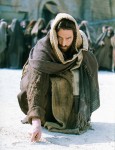
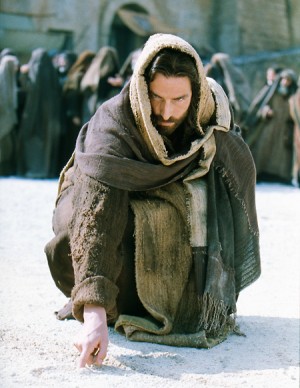 Related to the view that
Related to the view that 

